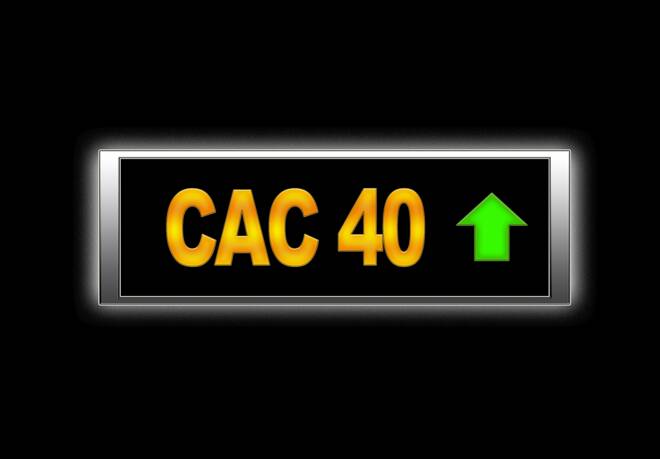Advertisement
Advertisement
European Equities: A Week in Review – 11/09/20
By:
It was a bullish week for the European majors, though there were plenty of negatives to prevent more material gains...
The Majors
It was a bullish week for the European majors in the week ending 11th September. The DAX40 rallied by 2.80%, with the CAC40 and EuroStoxx600 and rising by 1.39% and by 1.67% respectively
The upside in the week came in spite of tech stocks continuing to slide in the U.S and the U.S majors seeing deep red.
In the early part of the week, a sharp tumble on Tuesday limited the upside, however. Negative chatter on Brexit and another rise in tensions between the U.S and China had tested risk appetite.
Adding to the downside, was news of AstraZeneca suspending its coronavirus vaccine.
AstraZeneca has been working with Oxford University on a coronavirus vaccine that Trump was looking to fast track for the U.S.
While there were plenty of negatives, the negatives were not enough to reverse a bullish start to the week.
The Stats
It was a quieter week on the Eurozone economic calendar.
In the 1st half of the week, industrial production and trade figures from Germany delivered mixed results.
While industrial production rose by 1.2%, economists had forecast a 4.7% rise off the back of a 9.3% jump in June.
Trade figures were more upbeat, however, with Germany’s trade surplus widening from €14.5bn to €18.0bn in July.
According to Destatis,
- Exports rose by 4.7% from the previous month, while down by 11% on the same month a year earlier.
- Imports rose by 1.1% from the previous month and were down by 11.3% from the same month a year earlier.
- In July 2020, Germany exported goods to the value of €52.4bn to EU member states, while importing goods to the value of €44.4bn.
- Goods to the value of €36.8bn (-10.7%) were exported to the euro area countries, while goods imported fell by 13.1% to €30.1bn.
- Exports to EU countries outside of the EU fell 7% to €15.6bn, while imports fell 4.2% to €14.3bn.
- To countries outside of the EU, exports fell 12.5% to €49.9bn, with imports falling by 1.2% to €38.7bn.
From the Eurozone, an upward revision to 2nd quarter GDP numbers was not enough to prevent a U.S driven sell-off on the day.
The focus then shifted to ECB monetary policy decision and press conference on Thursday.
With the ECB holding monetary policy unchanged, the majors came under pressure on Thursday. An upward revision to growth forecasts suggested that there would unlikely be any further easing near-term.
There was also a spike in the EUR, during the press conference that also added downward pressure on the majors.
From the U.S
It was a relatively positive week on the economic data front.
Wholesale inflationary pressures softened less than had been anticipated in August. The core annual rate of inflation picked up from 1.6% to 1.7%, with consumer prices rising by more than expected in August.
On the negative, however, were the initial jobless claims figures. In the week ending 4th September, jobless claims stood at 884k. While unchanged from the previous week, economists had forecast claims to come in at 846k.
The Market Movers
From the DAX, it was a mixed week for the auto sector. Continental fell by 2.46% to buck the trend for the week. BMW and Volkswagen rose by 3.63% and by 3.89% respectively, with Daimler rallying by 5.50%.
It was a bearish week for the banking sector, however. Commerzbank slid by 6.06%, with Deutsche Bank falling by 4.74%.
From the CAC, it was a bearish week for the banks. Continental slid by 6.07% to lead the way down. BNP Paribas and Credit Agricole saw more modest losses of 2.98% and 1.73% respectively.
The French auto sector found further support in the week. Peugeot and Renault rose by 6.07% and by 0.04% respectively.
Air France-KLM and Airbus saw red, however, with the pair falling by 3.31% and by 1.38% respectively.
On the VIX Index
A run of 3 consecutive weeks in the green came to an end for the VIX in the week ending 11th September. Partially reversing a 33.93% jump from the previous week, the VIX fell by 12.62% to end the week at 26.87.
The weekly slide came in spite of the U.S equity market seeing deep red off the back of a tech stock rout.
For the week ending 11th September, the S&P500 and the NASDAQ ended the week down by 2.51% and by 4.06% respectively. The Dow saw a more modest 1.66% loss.
The Week Ahead
It’s a relatively busy week ahead on the Eurozone economic calendar.
Industrial production, inflation, wage growth, and trade data are due out for the Eurozone. September’s ZEW Economic Sentiment figures for Germany and Eurozone and the Eurozone will also be in focus.
We would expect the ZEW numbers and the Eurozone’s inflation and industrial production figures to have the greatest influence.
We can also expect the EUR to provide direction in the week. Any move back towards $1.19 levels would likely test support.
From elsewhere, industrial production figures out of the U.S and China, U.S retail sales, and the weekly jobless claims will also be in focus.
On the monetary policy front, expect the FED’s economic projections to have a material impact later in the week, however.
In what is likely to be another choppy week, geopolitics will also remain in focus, with Brexit and U.S and China to test the markets.
About the Author
Bob Masonauthor
With over 28 years of experience in the financial industry, Bob has worked with various global rating agencies and multinational banks. Currently he is covering currencies, commodities, alternative asset classes and global equities, focusing mostly on European and Asian markets.
Advertisement
